Comparative Universalisms conference
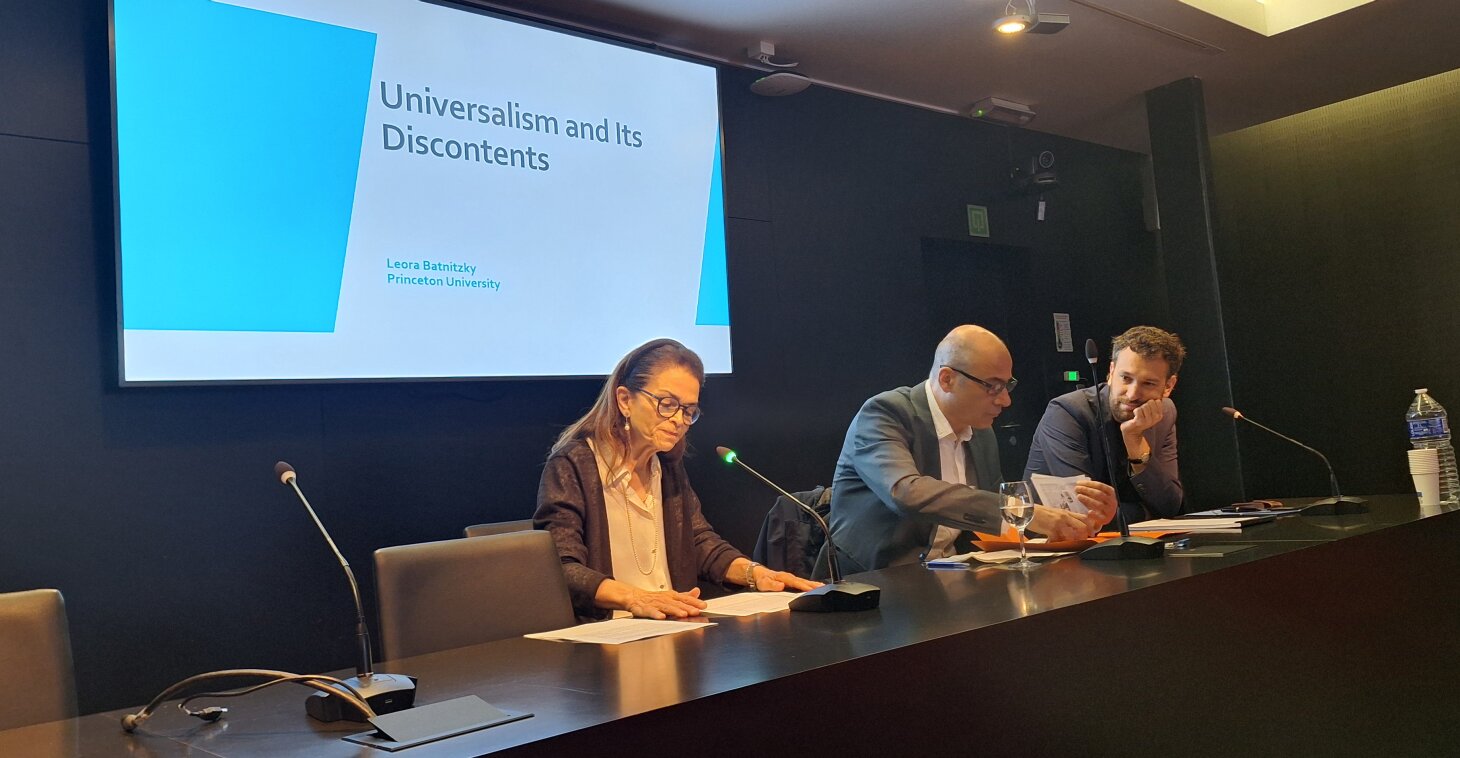
Comparative Universalisms conference
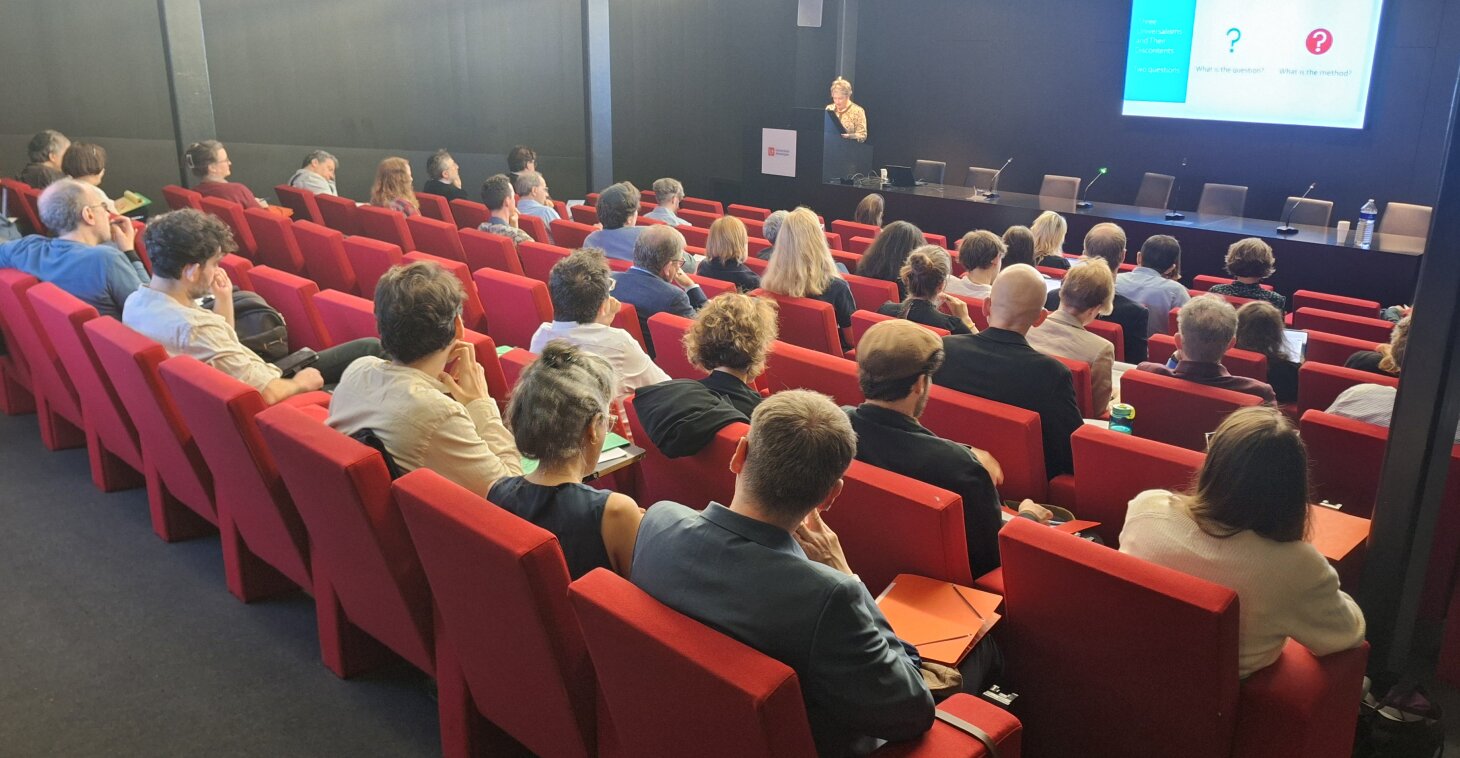
Comparative Universalisms conference
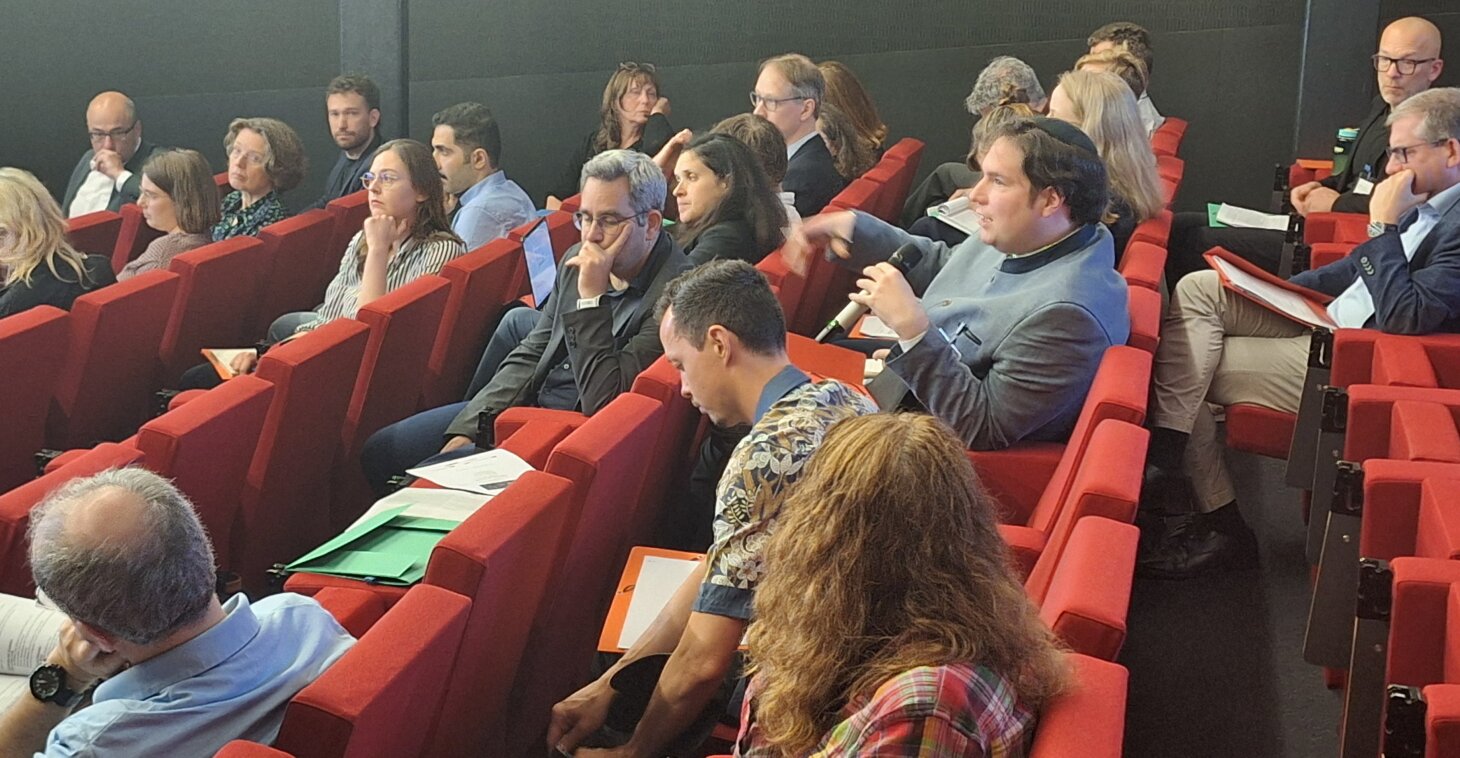
Comparative Universalisms conference
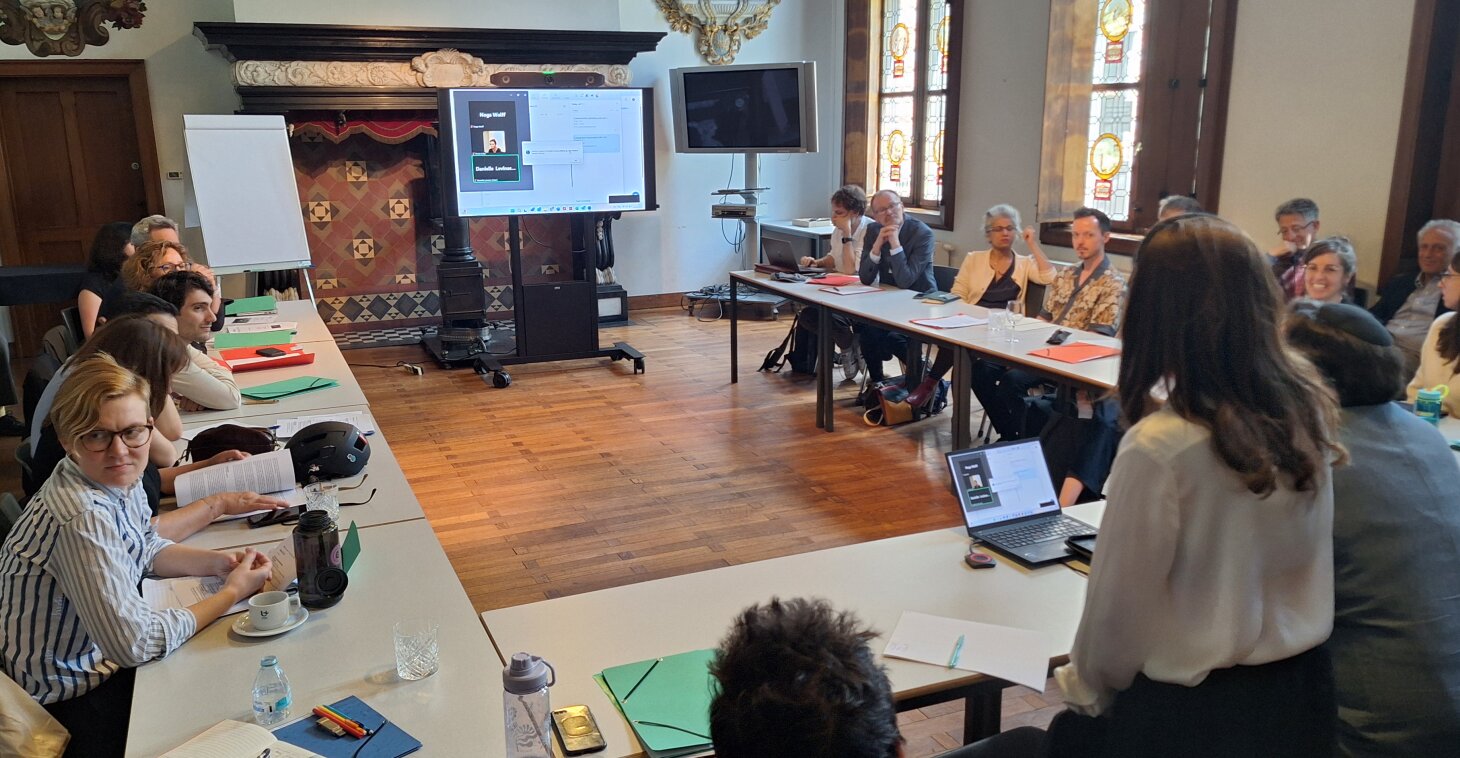
Comparative Universalisms conference
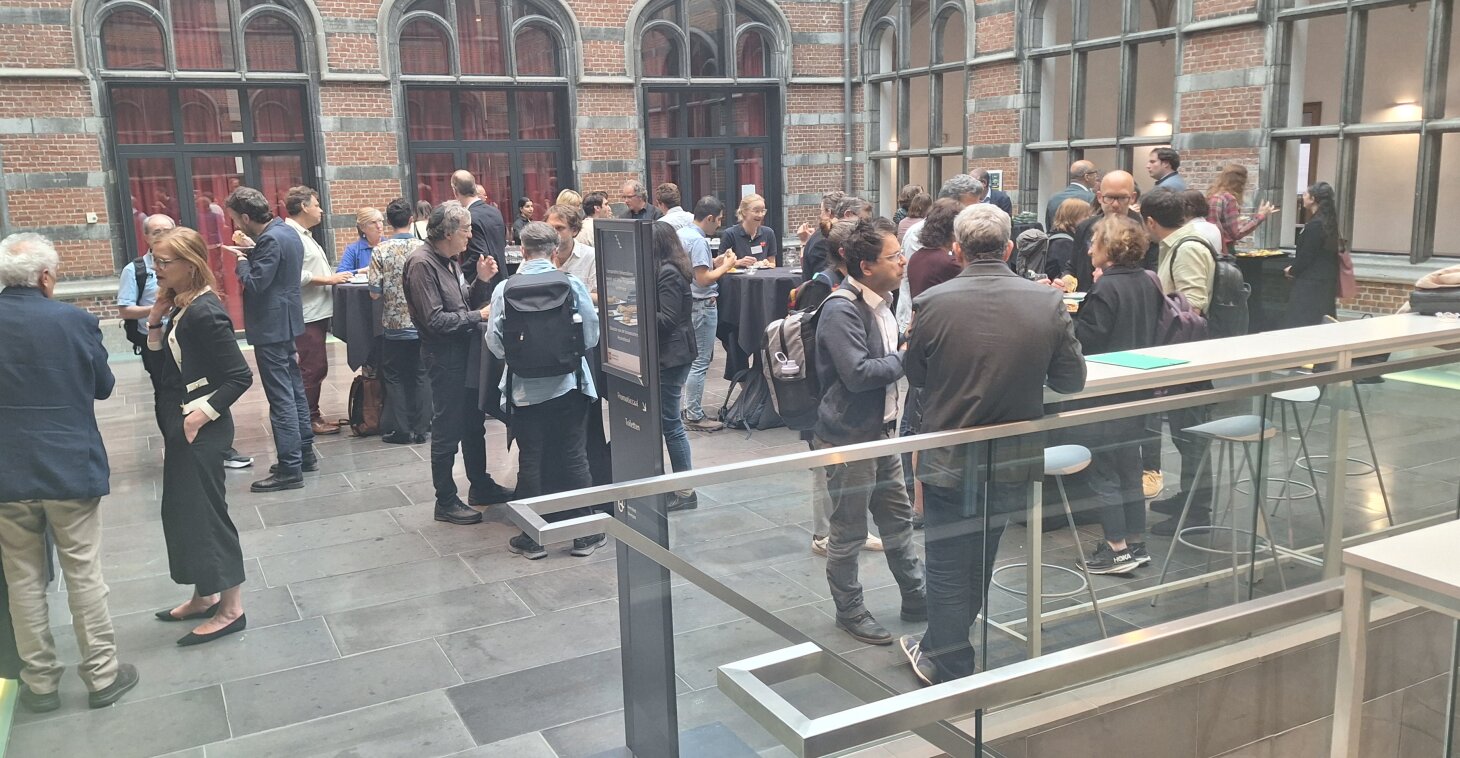
Comparative Universalisms conference
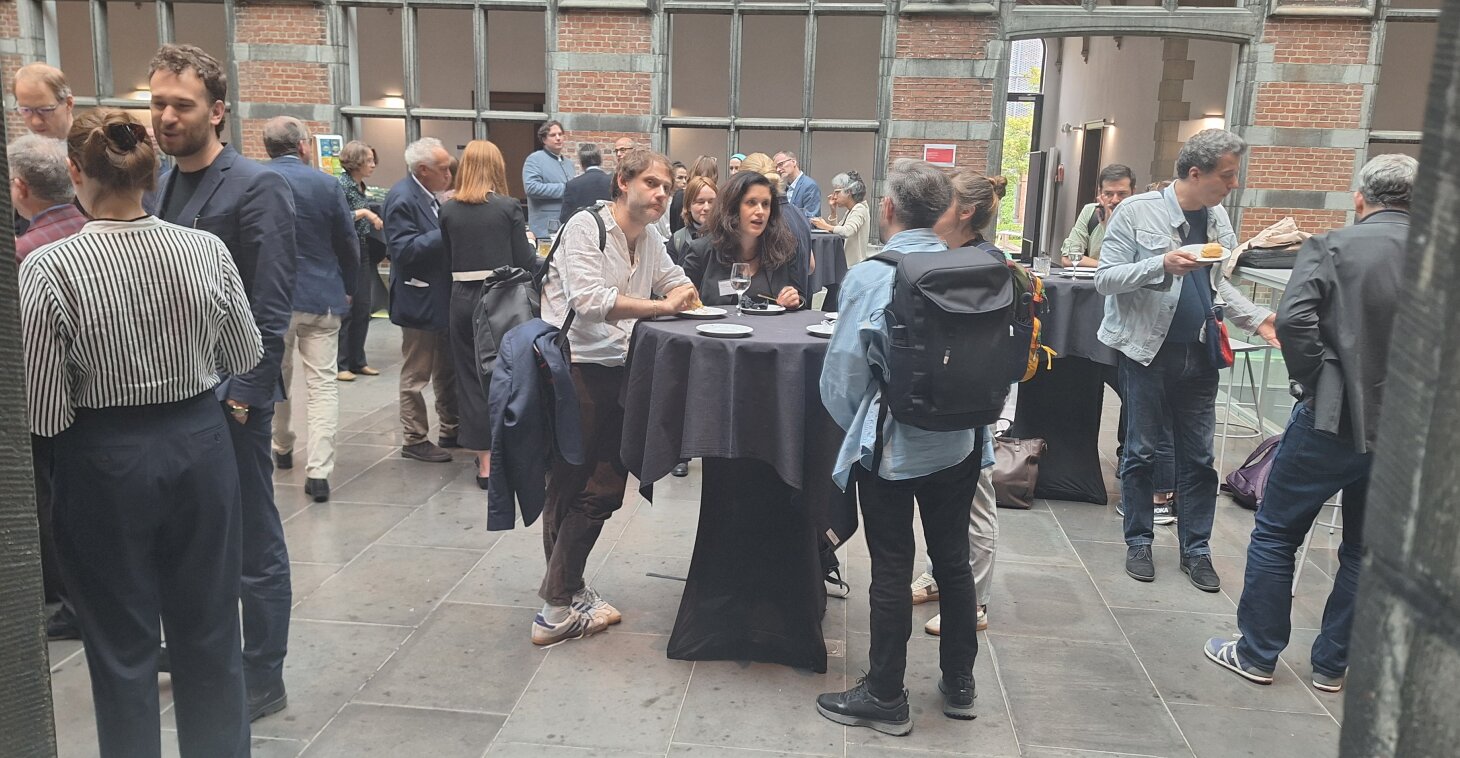
Comparative Universalisms conference
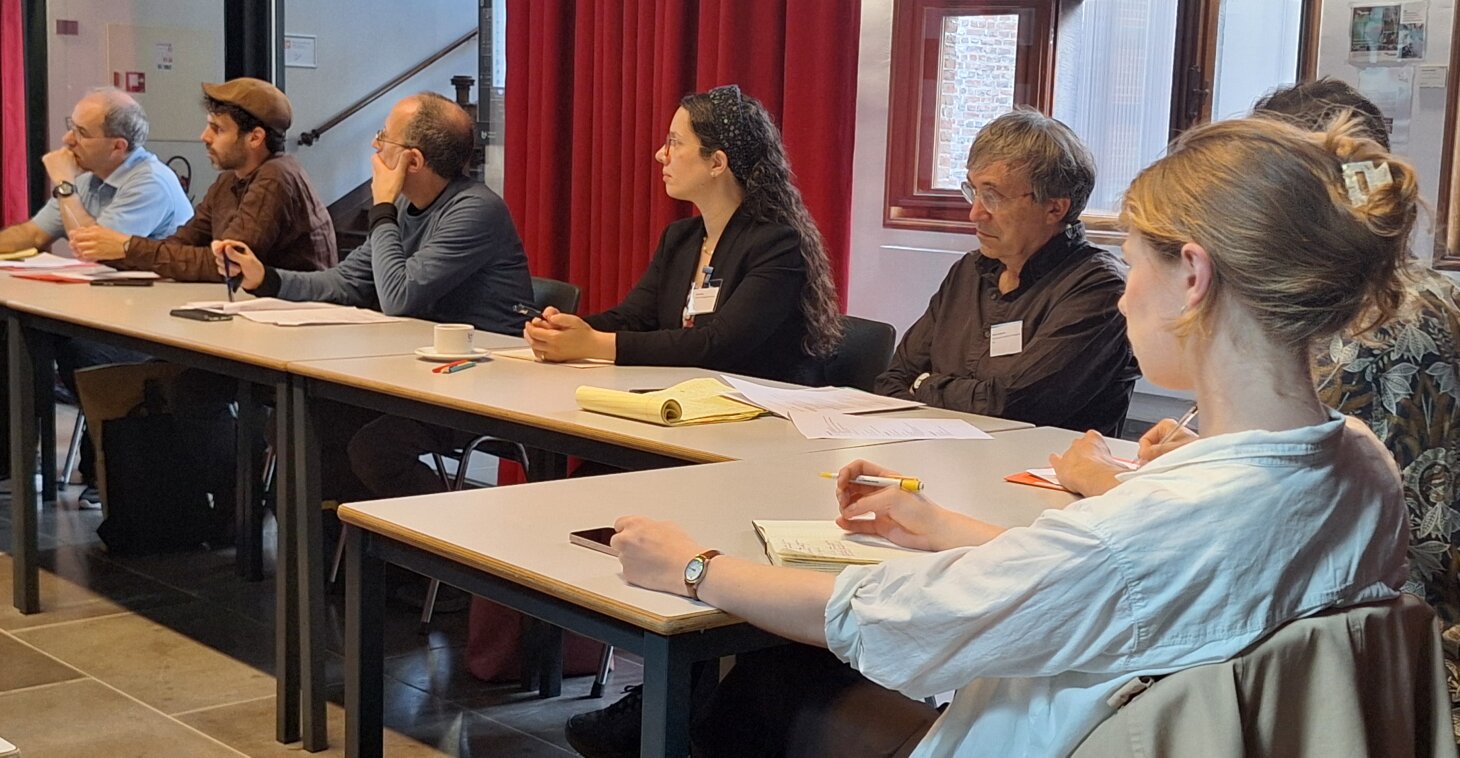
Comparative Universalisms conference
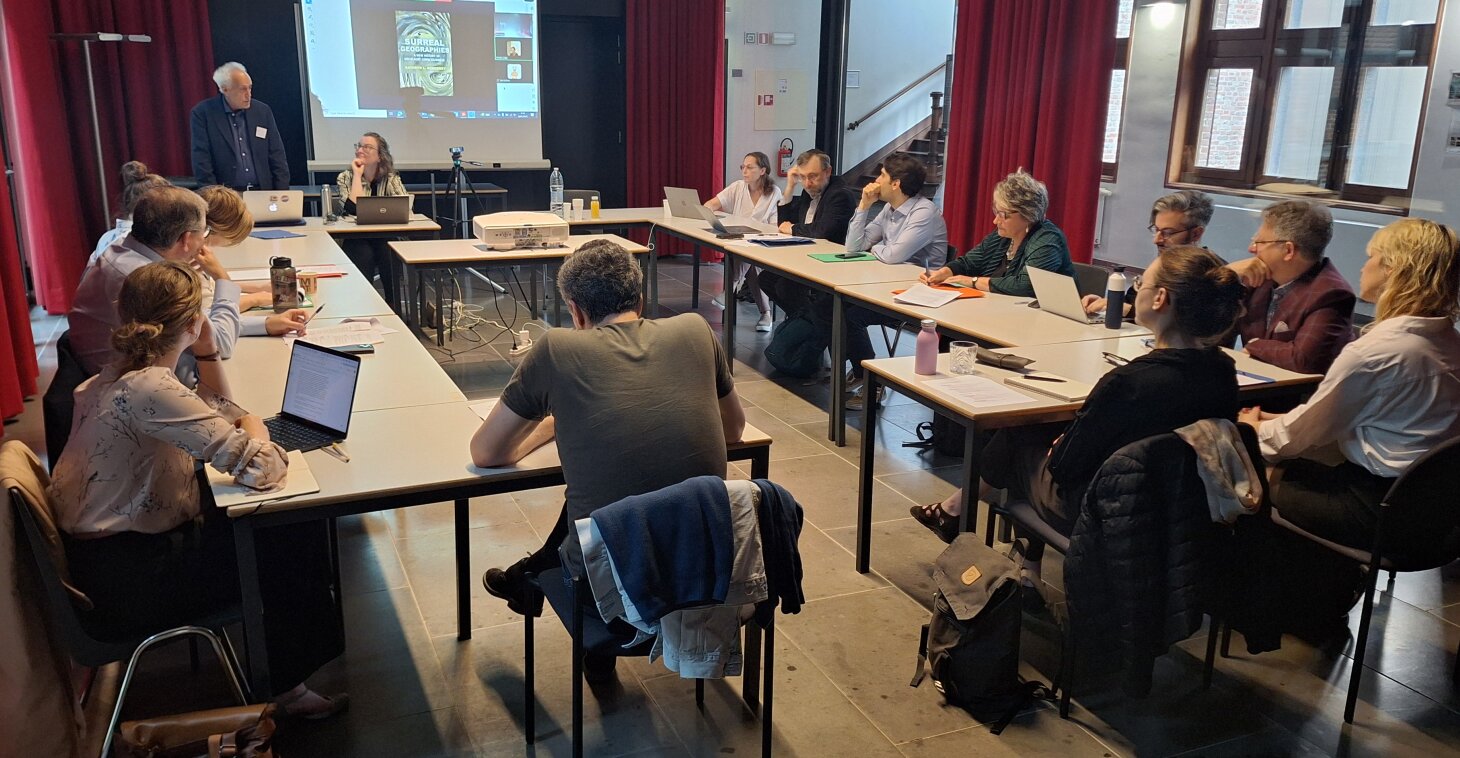
Comparative Universalisms conference
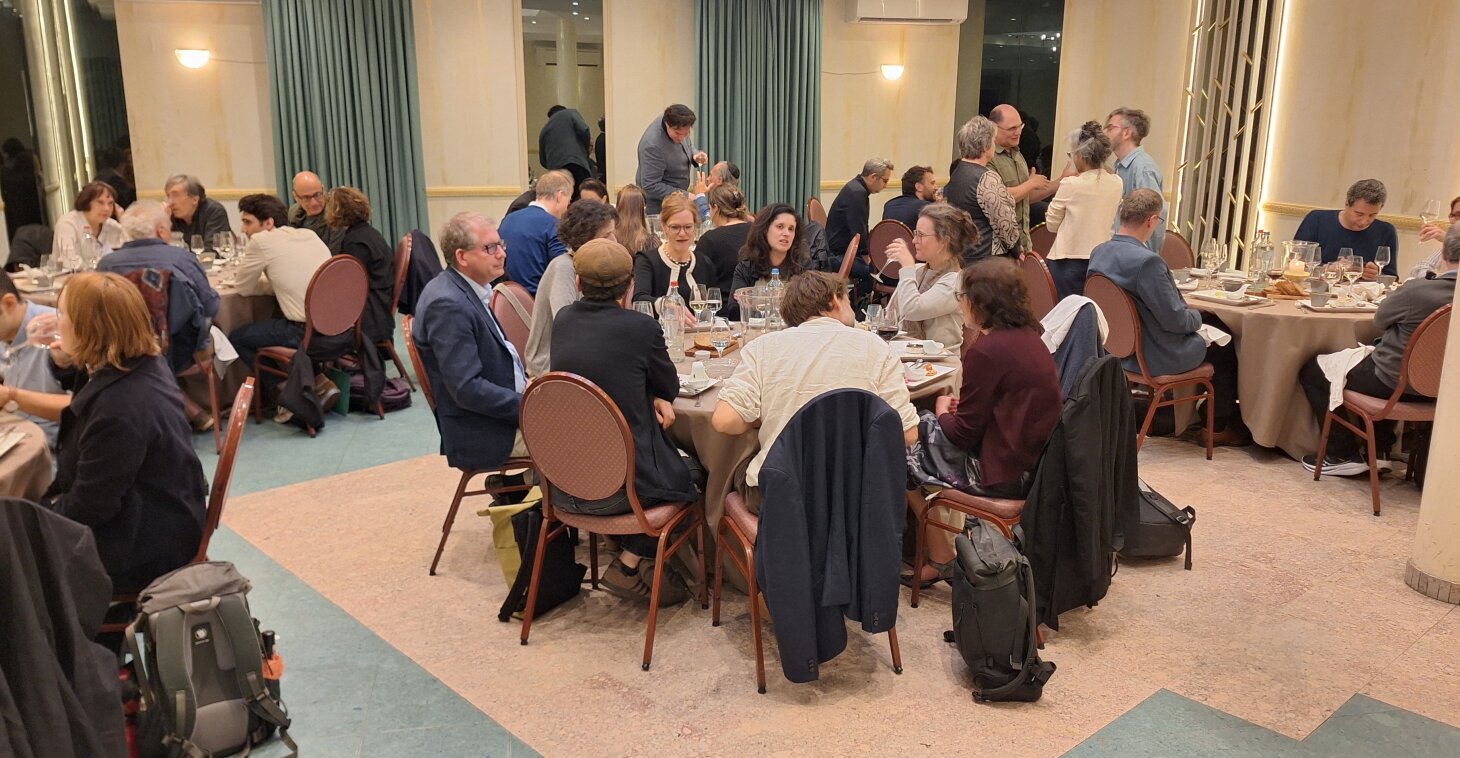
Comparative Universalisms conference
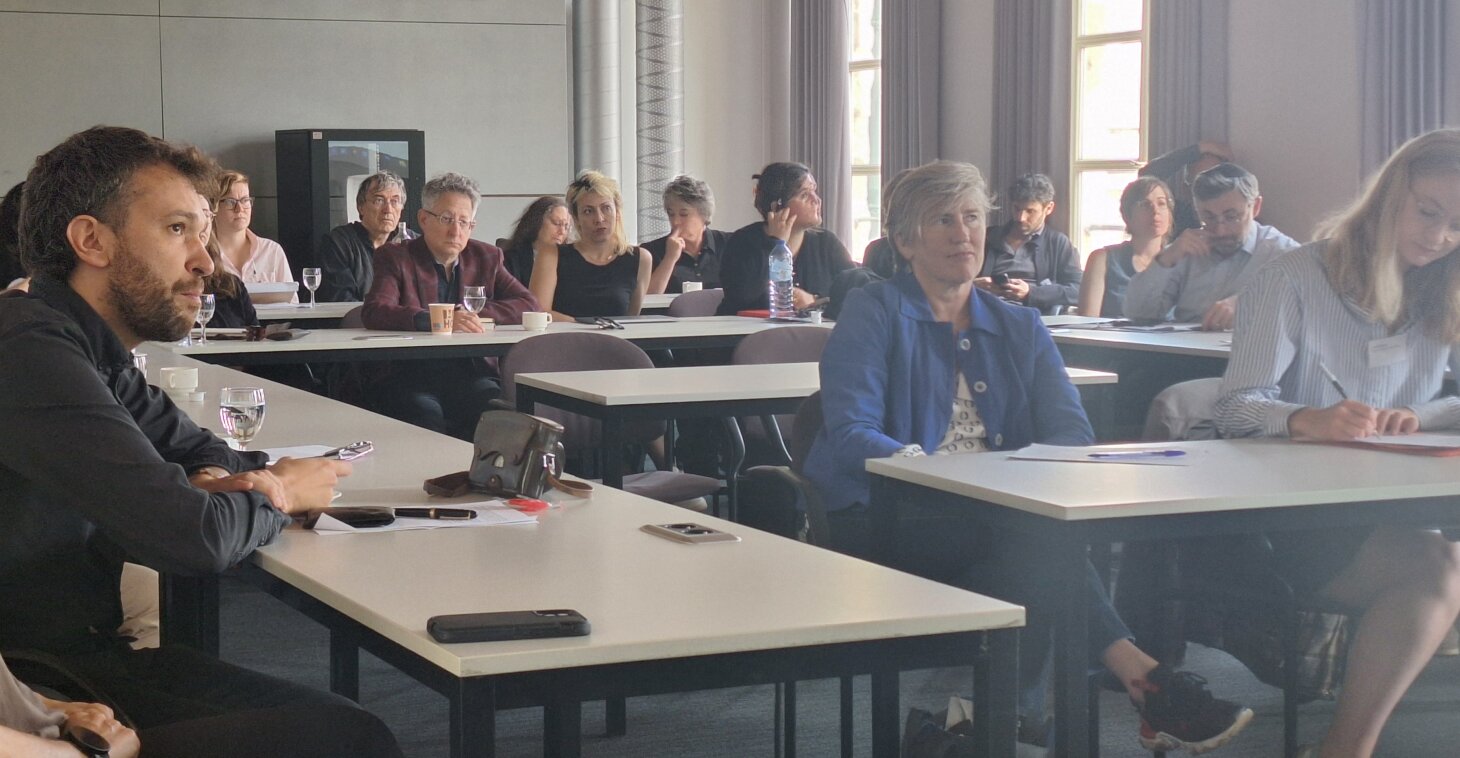
Comparative Universalisms conference
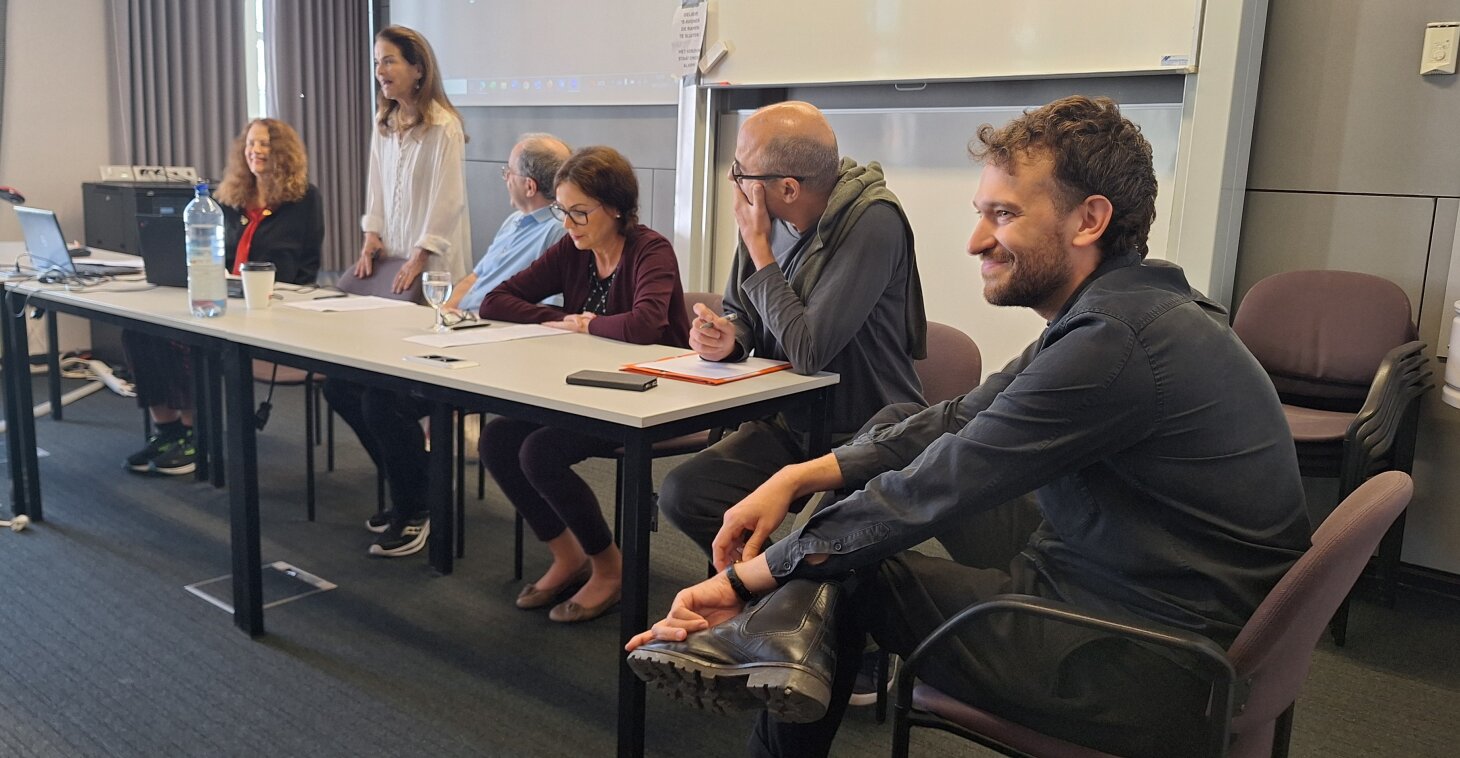
Comparative Universalisms conference
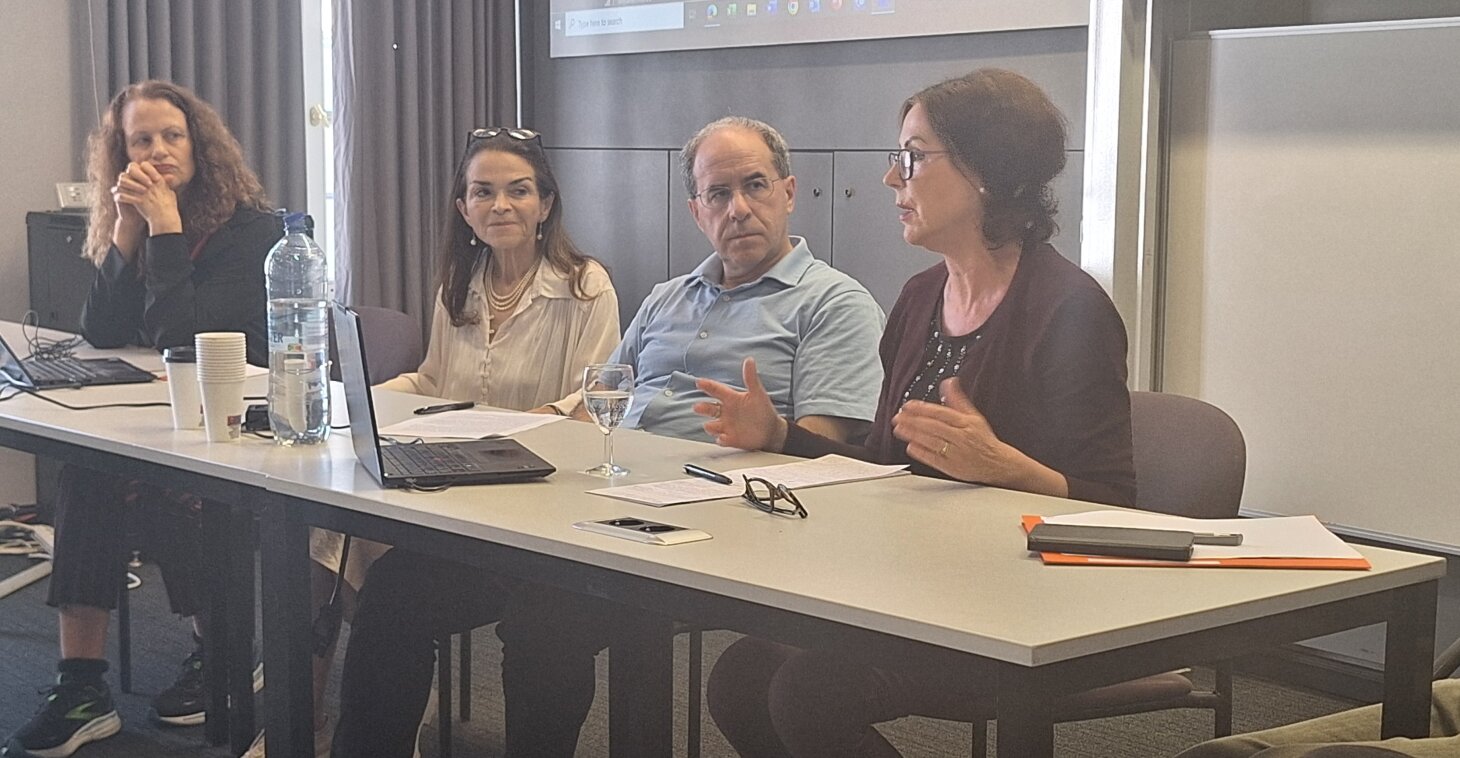
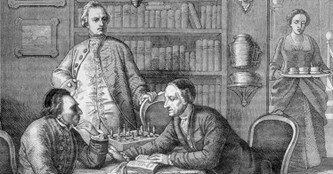
July 7-9, 2025
Institute of Jewish Studies
University of Antwerp
Venue:
7 & 8 July 2025: Klooster van de Grauwzusters,
Lange Sint-Annastraat 7 | 2000 Antwerpen
9 July 2025: Het Brantijser,
Sint-Jacobsmarkt 13 | 2000 Antwerpen
This inaugural conference of the new Network aimed to explore the multifaceted concept of universalism through the lens of Jewish thought and its interactions with other cultural, religious, and philosophical traditions.
The relation between the particular and the universal, and the very possibility of universals altogether, are fundamental philosophical problems involving questions of epistemology, ethics, and politics. In times of increasing war and human enmity, these questions are particularly urgent as they relate to the recognition of a common humanity – in all its diversity and particularity – as a condition of peace between different groups.
Greek philosophy is often referred to as the birthplace of universal thought and has had a longstanding paradigmatic status with regard to the universal. Given the apparent paradox in the notion of more than one universal, a comparative approach to the term “universalism” challenges this status, its genealogy, and its legacy in European philosophy since the Enlightenment. The project of comparing universalisms invites a critical reconsideration of these traditional claims and a discussion of its premises and implications, its criticisms and possible alternatives.
In the history of Jewish thought, Jews and Judaism have consistently understood themselves as a distinct particularity engaged in a profound and meaningful relationship with universality. Jewish intellectual traditions across various historical, philosophical, and political contexts have examined this dynamic from multiple perspectives, offering significant philosophical approaches to understanding the intricate interplay between universality and particularity. Drawing inspiration from a rich textual tradition—ranging from the Bible, Talmud, and medieval Jewish thought to a diverse array of modern philosophers—this conference aimed to explore how Judaism can inspire nuanced conceptualizations of the relationship between universalism and particularism, moving beyond simplistic dichotomies. It sought to investigate the various possibilities for recognizing both the strengths and limitations of universalism and particularism, highlighting thinkers and texts that engage with these themes. The conference examined the potential of the Jewish tradition to offer alternatives to the ostensibly universal message of Christianity and the homogenizing tendencies of Enlightenment thought, while also providing frameworks for acknowledging and valuing cultural specificity and historical concreteness without succumbing to the sterility, exclusivity, or supremacy often associated with self-enclosed worldviews and systems of thought.
By bringing together diverse viewpoints, this conference aspired to foster a deeper understanding of universalism’s possibilities and limitations, to reveal its multiple and often contradictory definitions and to conceptualize new approaches to the universal in light of insights gained from the Jewish scriptural and philosophical tradition. Questions that were addressed included: How do universalist claims relate to other aspects of a certain philosophical work or tradition? How do Jewish texts and thinkers of different philosophical traditions navigate the tension between particular identities and universal values? Which values are prioritized and which are relinquished in different versions of universalism? What follows from distinguishing between the content and the addressee when making a claim to the universal? What can be learned from the Jewish tradition of balancing particularism and universalism, both in its theoretical dimensions and its practical applications in diverse contexts? How can Jewish approaches to universalism communicate with or possibly apply to other European and non-European traditions and identities?
The conference provided a platform for interdisciplinary and interreligious academic discussion, networking, and collaboration among scholars from around the world.
Academic Organizing Committee: Prof. Vivian Liska (University of Antwerp / The Hebrew University of Jerusalem),Prof. Arthur Cools (University of Antwerp), Ass. Prof. Willem Styfhals (KU Leuven).

Program (summary)
Monday, July 7, 2025
- 8:45-9:15 Registration, Welcome and Coffee
- 9:15-9:30 Welcome by Vivian Liska
(University of Antwerp / The Hebrew University of Jerusalem) - 9:30-9.45 Introduction by Arthur Cools (University of Antwerp)
and Willem Styfhals (KU Leuven) - 9:45-10:45 Opening Keynote: Leora Batnitzky (Princeton University)
Universalism and its Discontents - 10:45-11:15 Coffee
- 11:15-13:00 Parallel Sessions 1 and 2
- 13:00-14:00 Lunch (speakers only)
- 14:00-15:45 Parallel Sessions 3 and 4
- 15:45-16:15 Coffee
- 16:15-18:30 Parallel Sessions 5 and 6
- 19:00 Conference dinner at Hoffy’s, Lange Kievitstraat 52 (speakers only)
Tuesday, July 8, 2025
- 9:00-10:45 Parallel Sessions 7 and 8
- 10:45-11:15 Coffee
- 11:15-13:00 Parallel Sessions 9 and 10
- 13:00-14:00 Lunch (speakers only)
- 14:00-15:10 Parallel Sessions 11 and 12
- 15:10-16:20 Parallel Session 13
- 16:20-16:45 Coffee
- 16:45-18:30 Parallel Sessions 14 and 15
- 18:45-19:45 Keynote: Moshe Halbertal
(The Hebrew University of Jerusalem / NYU)
Universalism, Particularism, and Humanism
Wednesday, July 9, 2025
- 9:00-10:45 Parallel Sessions 16
- 10:45-11:15 Coffee
- 11:15-12:45 Closing reflections and closing remarks
- 13:00-14:00 Lunch (speakers only)
- 14:30-15:30 Meeting of the Advisory Board of the Network
Detailed program
Monday, July 7, 2025
11:15-13:00
1. Twentieth-century German-Jewish Thought I
Chair: Vivian Liska
- Dennis Baert (University of Antwerp)
Universal Commandments and Particular Laws: Franz Rosenzweig and Human Rights - Shira Billet (Jewish Theological Seminary)
Philosophical and Jewish Ethics Between the Universal and the Particular: Hermann Cohen on Truthfulness and the Categorical Imperative - Gilad Sharvit (Towson University)
Herman Cohen and Moses Hess on Judaism between Zionism and Universalism
2. Social and Political Perspectives
Chair: Mbarak Zaheran
- Itamar Ben-Ami (Utrecht University)
Beyond Visibility and Invisibility: The Hidden Kippah and the Question of Jewish Publicness in Europe - Stephanie von Steinsdorff (Universität Potsdam)
Subaltern Solidarity: Universalism in Abolitionist Writings of Jewish Journalists in the 19th Century - Noga Wolff (College of Management, Israel) and Sinyal Athamneh (Bar-Ilan University) (on Zoom)
Finding Universalism in Particularism: Applying Analytical Conclusions from the Past to the Mediation of the Current Israeli–Palestinian Conflict
14:00-15:45
3. Twentieth-Century German-Jewish Thought II
Chair: Thomas Ernst
- Amir Engel (The Hebrew University of Jerusalem)
Jewish and Universal Spirituality: Martin Buber's Revolution - Stephanie Graf (Free University Berlin)
“Soldiers of Sin”: Metamorphosis of Heretic Antinomianism from Sabbatianism to Critical Theory - Hannah Sabrina Hübner (Goethe-Universität Frankfurt)
Universalism as Critique: Redemption in Walter Benjamin and Franz Rosenzweig
4. From Maimonides to Spinoza
Chair: Theodor Dunkelgrün
- Federico Dal Bo (University of Modena and Reggio Emilia)
Divine Equality, Earthly Distinctions: Maimonides' Theological Political Paradox - José María Sánchez de León (Universitat de Barcelona)
The Voice of God: Spinoza’s Christ and the Foundations of Universal Religion - Michael Rosenthal (University of Toronto)
A New Reading of Spinoza’s Account of the Election of the Jews: The Role of Imaginative Universals in Practical Ethics
16:15-18:30
5. Literature and Music
Chair: Ilana Pardes
- Marc Caplan (Heinrich-Heine-Universität, Düsseldorf)
Dialects of Enlightenment: Double Consciousness and Diasporas in Early Modern Jewish Drama - Stefanie Mockert (The Hebrew University of Jerusalem / HMTM Hannover)
(Re-)encounters of Universalism in Jewish Musical Thought - Yochai Oppenheimer (Tel Aviv University)
Universalism versus Politics in the Poetry of Nathan Alterman
6. Twentieth-century German-Jewish Thought III
Chair: Vivian Liska
- Philipp Von Wussow (Goethe-Universität Frankfurt)
Two Universalisms: German-Jewish Philosophy on Reason and Revelation - Asher Biemann (University of Virginia)
The Lost Unity of Humankind: On a Figure of (German) Jewish Thought around 1945 - Orr Scharf (The University of Haifa) (on Zoom)
Political Theology for All? Hugo Bergman’s Die Heiligung des Names and the Boundaries of Sovereignty and Divine Intervention - Hannah Peaceman (Friedrich-Schiller-Universität Jena)
Dialectics of Emancipation. Jewish Hegelian critique as a source for critical theories
Tuesday, July 8, 2025
9:00-10:45
7. Moses Mendelssohn in Dialogue
Chair : Dennis Baert
- Yael Almog (Durham University)
Mendelssohn and J.G Herder’s Exchange on Universalism and the Legacy of Human Rights - Antonia Steins (Goethe-Universität Frankfurt)
Universalist Particularity or Context-Sensitive Universalism? Religious Tradition and Moral Universalism in Lessing and Mendelssohn - Andree Michaelis-König (University of Antwerp)
“Sacred Prejudices”: Negotiating Universalism and Judaism in the Lavater-Mendelssohn Debate
8. Memory and Forgetting
Chair: Michael Levine
- Kate Brackney (Leiden University)
Remembering ‘Planet Auschwitz’ during the Cold War - Randi Rashkover (College of William and Mary)
Jewish Collective Memory and the Philosophical Adjudication between the Universal and the Particular - Sergey Dolgopolsky (SUNY, Buffalo)
The Universalism of Forgetting?
11:15-13:00
9. Emmanuel Levinas in Dialogue
Chair : Arthur Cools
- Bruno Chaouat (University of Minnesota) (on Zoom)
Withstanding Reason: Shestov and Levinas Before the Catastrophe - Femke Caers (KU Leuven)
The Paradox of Particularism: Lessons from Levinas - Shira Wolosky (The Hebrew University of Jerusalem)
Normative Particularism: Levinas's Self in Tzimtzum
10. Hannah Arendt in Dialogue
Chair : Nathan Van Camp
- Courtney Blair Hodrick (Stanford University)
One Must Defend Oneself as a Jew: Hannah Arendt’s Particularist Universalism - Rafael Zawisza (Berlin)
Unum ac singulum or ex pluribus unum: Plessner, Goldberg, and Arendt on Universalism (in the 1920s) - Ayala Gidron (Bar-Ilan University)
Radical Good: The Link Between the Particular and the Universal. A Perspective on the Concept of Good in Hannah Arendt’s Pre-Political Philosophy
14:00-15:10
11. Language and Translation
Chair: Arthur Cools
- Jan Kühne (The Hebrew University of Jerusalem) (on Zoom)
Untranslatable Universalisms? Hebrew Homophony and Palestinian Paronymy in the Works of Dan Pagis and Ghassan Kanafani - Libera Pisano (Nova University of Lisbon) (on Zoom)
Universal as Language: Jewish Critiques of Esperanto in the Early 20th Century
12. Talmud and Philosophy
Chair: Dennis Baert
- David Lemler (Sorbonne, Paris)
“All Israel”, on a Universal Quantifier Applied to a Proper Name - David Krausz (Université Libre de Bruxelles)
The Goy (Gentile), the Deaf-Mute, the Madman, and the Minor: What Paradigm of the Universal in Talmudic Law?
15:10-16:20
13. Jacques Derrida and Twentieth-century French-Jewish Thought I
Chair: Thomas Froy
- Agata Bielik-Robson (University of Nottingham)
Marrano Universalism: Benjamin, Derrida and Buck-Morss on the ‘Open Access’ Tradition - Annabel Herzog (University of Haifa)
Jacques Derrida and Gillian Rose, and the Question of Home
16:45 – 18:30
14. Jacques Derrida and Twentieth-century French-Jewish Thought II
Chair: Thomas Froy
- Hanoch Ben-Pazi (Bar-Ilan University)
“Being a Westerner”: Rethinking Universality through the Philosophy of Léon Brunschvicg - Caroline Sauter (Goethe-Universität Frankfurt)
Compliquer l’universel: Reading Shylock with Barbara Cassin, Jacques Derrida, and Sarah Kofman - Peli Meir (The University of Haifa)
Simone Weil, Gillian Rose, and the Ethico-Aesthetics of Eating the Sun
15. Jewish Law
Chair: Leora Batnitzky
- Stefan Goltzberg (Université Libre de Bruxelles)
To what Extent Is Judaism Universal or Particular? Remarks about the Legal Nature of Judaism - Neri Ariel (Bar-Ilan University) (on Zoom)
Legal Writing in Judeo-Arabic: Cultural Transitions as a Path Toward Universality in Medieval Legal Thought - Gilad Shenhav (LMU Munich)
Moses’ Law and the 19th Century: Between the Universal and the National
Wednesday, July 9, 2025
9:00-10:45
16. Judaism, Gnosticism, Hellenism
Chair: Willem Styfhals
- Saman Mahdevar (Goethe-Universität Frankfurt)
Messianism Beyond Incarnation: Joachimite–Gnostic Dualism in Taubes and Corbin - René Bloch (University of Bern)
Cosmopolitan Thinking in Jewish Hellenism - Danielle Cohen-Levinas (Sorbonne, Paris)
Face-à-face. Back to Jerusalem and Athens
11:15-12:45
17. Concluding reflections
Chair: Vivian Liska
- Christian Wiese (Goethe-Universität Frankfurt) (on Zoom)
The Paradoxes of Universalism: A Case Study - Benjamin Pollock (The Hebrew University of Jerusalem) (on Zoom)
Future Universalisms in the New Thinking
... and closing remarks
- Agata Bielik-Robson (University of Nottingham)
- Ilana Pardes (The Hebrew University of Jerusalem)
- Michael A. Rosenthal (University of Toronto)
- Willem Styfhals, Arthur Cools, and Vivian Liska
Program subject to possible minor changes
Call for Papers (closed)
Call for Papers
Comparative Universalisms: Jewish and Other Perspectives, 7-9 July 2025
Appel à communications
Universalismes Comparés : Perspectives Juives et Autres, 7-9 juillet 2025